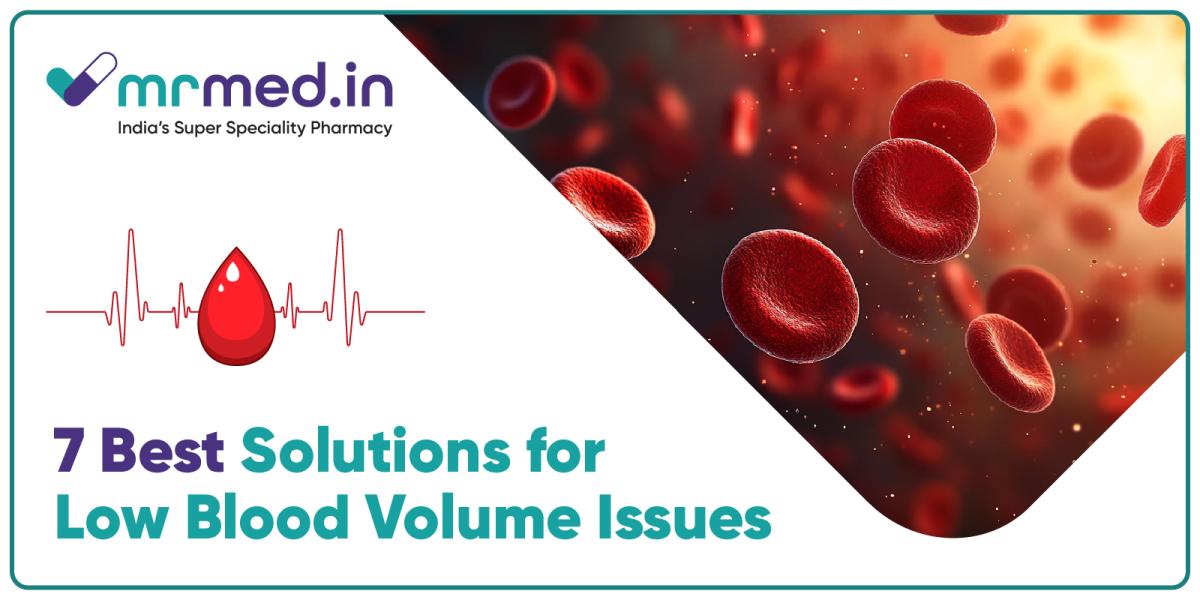Top 7 Medical And Lifestyle Solutions For Low Blood Volume Management

When blood volume in the body drops, it can cause dizziness, weakness, low blood pressure, and even organ damage if ignored. Blood carries oxygen and nutrients to every cell, and when it is reduced, the body struggles to function. The good news is that both medical treatments and daily lifestyle changes can help improve and manage this condition. This guide covers the most effective ways to manage low blood volume safely.
What Are the Common Medical Treatments for Low Blood Volume?
Doctors decide treatment depending on the cause and severity of the condition. The most common medical options include:
- IV fluids – Quickly restore hydration and improve circulation, especially after dehydration or surgery.
- Blood transfusions – Used when there is severe blood loss due to accidents, internal bleeding, or surgery.
- Plasma expanders – Special solutions that help maintain stable blood pressure and improve circulation.
- Albumin-based therapy – For example, Flexbumin 20% Injection 100ml, which contains Human Albumin, is sometimes prescribed to restore plasma levels and maintain fluid balance.
These treatments are usually performed in hospitals under close monitoring. They provide quick relief and stabilise the patient before long-term care continues.
How Does Diet Help in Managing Low Blood Volume?
Food plays an important role in building and maintaining healthy blood. A nutrient-rich diet helps the body produce red blood cells and maintain proper circulation:
Iron-rich foods – Spinach, beetroot, red meat, and lentils support haemoglobin production.
- Vitamin B12 – Eggs, fish, and dairy improve red blood cell formation.
- Vitamin C – Citrus fruits enhance iron absorption from food.
- Folate sources – Beans, peas, and leafy vegetables help prevent anaemia.
- Protein – Nuts, seeds, and dairy products provide building blocks for healthy cells.
Eating balanced meals daily ensures the body recovers faster and prevents repeated episodes of low blood volume.
Can Drinking More Fluids Improve Blood Volume?
Yes. Hydration is one of the easiest and most effective ways to support blood volume:
- Drink at least 2–3 litres of water daily.
- Add oral rehydration solutions if dehydration is due to vomiting, diarrhoea, or heat.
- Drink coconut water or soups for natural electrolytes.
Avoid excessive alcohol and caffeine, which increase fluid loss.
Keeping hydration levels steady helps the body maintain circulation and avoid sudden drops in blood pressure.
What Lifestyle Habits Support Recovery?
Along with treatment and diet, certain habits can strengthen recovery:
- Adequate sleep – Gives the body time to repair and restore.
- Regular light exercise – Walking, yoga, or stretching improves circulation.
- Stress control – Meditation and breathing exercises reduce strain on the heart.
- No smoking – Smoking reduces oxygen supply and slows recovery.
These small changes, when practised daily, can improve overall health and prevent complications linked with low blood volume.
How Important Is Monitoring and Follow-Up?
Ongoing care is essential. Without monitoring, low blood volume can return or worsen. Doctors usually recommend:
- Routine blood tests to track haemoglobin and plasma levels.
- Home monitoring of blood pressure.
- Regular follow-ups are necessary to adjust medicines or make lifestyle changes.
This helps detect issues early, ensuring treatment is effective in the long term.
Can Low Blood Volume Be Linked to Other Health Issues?
Yes. Sometimes, low blood volume is not the main problem but a symptom of other conditions:
- Kidney problems – Can cause fluid imbalance and reduce plasma levels.
- Heart disorders – May affect how well blood circulates.
- Adrenal gland issues – Can disturb fluid regulation.
Identifying and managing these conditions is critical, as treating only the blood volume without addressing the root cause may not solve the issue.
Are There Natural Remedies That May Help?
Natural options may support recovery when used carefully:
- Coconut water – Provides electrolytes naturally.
- Herbal teas like ginger or ginseng – Support circulation.
- Antioxidant-rich foods – Berries and green vegetables reduce inflammation.
These can complement medical treatment, but patients should always consult their doctor before using them.
When Should You Seek Urgent Medical Help?
Immediate medical care is needed if symptoms become severe:
- Sudden dizziness or fainting.
- Extremely low blood pressure.
- Chest pain or rapid heartbeat.
- Heavy bleeding.
Delaying care can worsen the condition and put vital organs at risk.
Comparison Table: Medical vs Lifestyle Solutions

Caption
Final Thoughts
Managing low blood volume requires a mix of medical support, healthy eating, hydration, and lifestyle adjustments. By recognising symptoms early and following professional advice, people can restore stability and prevent complications. Awareness and timely action remain the key to long-term well-being.
